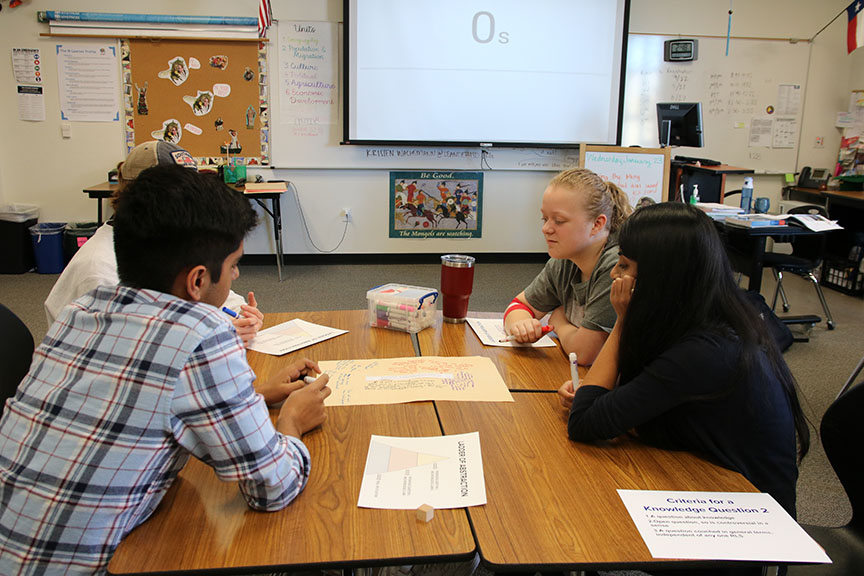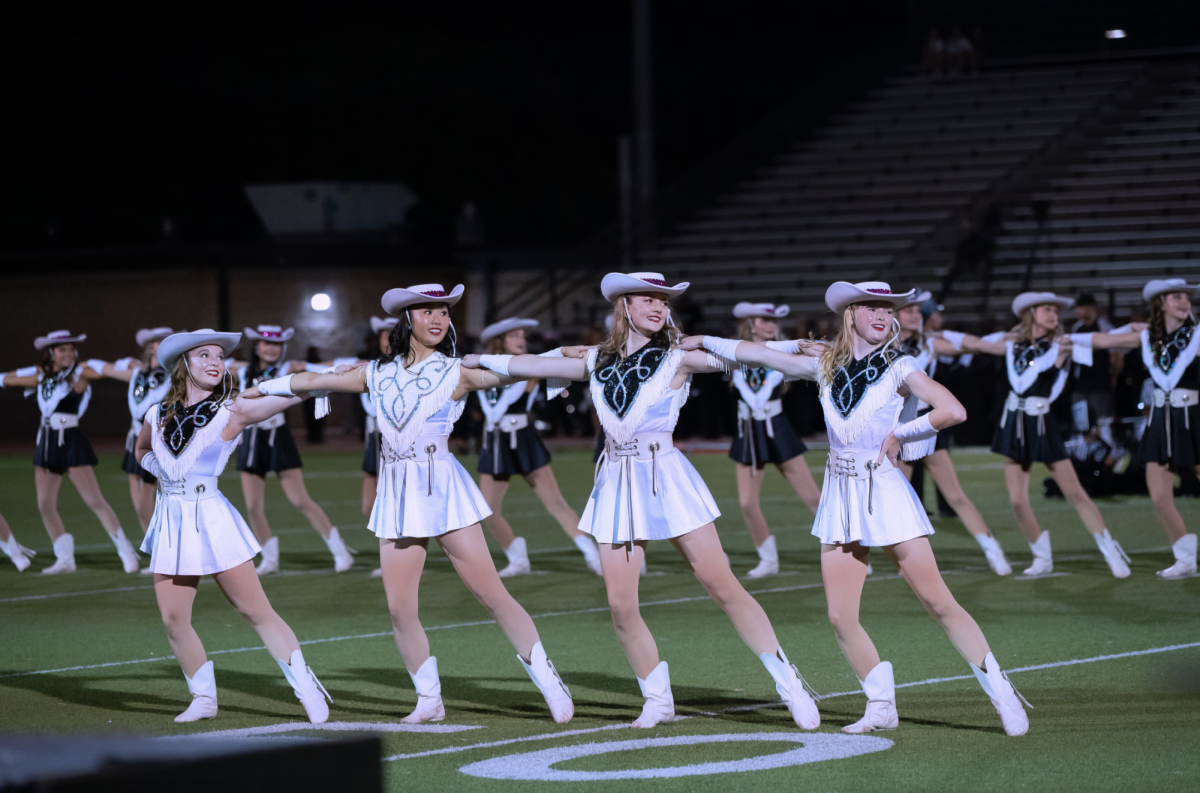IB program offers different curriculum for students
Ms. Wachsmann’s 4th period IB Theory of Knowledge students congregate at their desks.
February 19, 2019
Only a small percentage of students are willing and capable of taking on the challenge of the rigorous International Baccalaureate program. Rena Liang and Spurthi Kodkani are two of the 44 juniors are up for that challenge of pursuing an IB diploma.
“I like being in the IB program because it’s a really unique approach to learning and I enjoy the small class sizes, Liang said. “[There are] lots of discussions which I enjoy and the content is really interesting. there’s some classes unique to the IB program that I definitely think are really cool.”
This is the first year IB classes have been offered. The IB program operates differently from AP classes. For example, essays are written for tests instead of multiple choice questions. Kodkani said she thinks this helps to prepare for college.
“IB is definitely a challenge that I took up but I feel like it’s a pretty good experience, a different way of thinking,” Kodkani said. “I’ve been in AP classes for the first two years of high school. In AP, it’s a lot of information you’re given and you just have to memorize it and be able to regurgitate it. In IB, the information is given to you a bit slower and you have to be able to process the information more and understand what you’re talking about. It’s a very different way of learning but I like it because it just makes sense to learn that way then to just learn facts.”
Teacher Andrew Perrone teaches pre-AP physics, engineering science and several classes of IB physics. Over the summer, 27 teachers attended workshops and training so they could teach IB classes.
“There definitely is [a difference between the classes I teach],” Perrone said. “IB physics goes into more depth on certain topics than pre-AP physics. You could also compare it to AP physics- IB physics probably fits between pre-AP and AP, so not as in depth as AP but more in depth than pre-AP. But, it has a little bit of a different feel. There’s a real emphasis on experimentation, there’s a discussion of the philosophy of science which tends to be a theme in the IB program in general. The classes also tend to be smaller which effects the dynamic as well.”
Both girls are planning on taking IB courses next year in order to complete the IB program and receive the IB diploma. IB students are required to take three standard level classes and three higher level classes, meaning six total through the course of two years. Students must also get a total combined score of 24 on IB tests.. Other requirements include an extended essay, creativity/activity service and a Theory of Knowledge course.
“It is definitely a lot more time commitment because you don’t only have your classes to worry about,” Kodkani said. “We have our classes and then we have our extended essay that we’re working on throughout the course of two years, which is like a 4,000-5,000 word research paper.”
Both girls said the IB program is challenging and time consuming, but a good experience to have.
“[When I first started taking IB] it was a little rough because I did AP my first two years [of high school],” Kodkani said. “It was just so new to me and nobody really knew what was going on. But now that we’ve like gotten through one semester and people understand more, I mean, I think it’s a pretty good experience for me and I don’t regret taking IB.”







